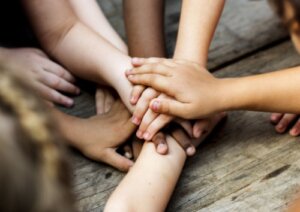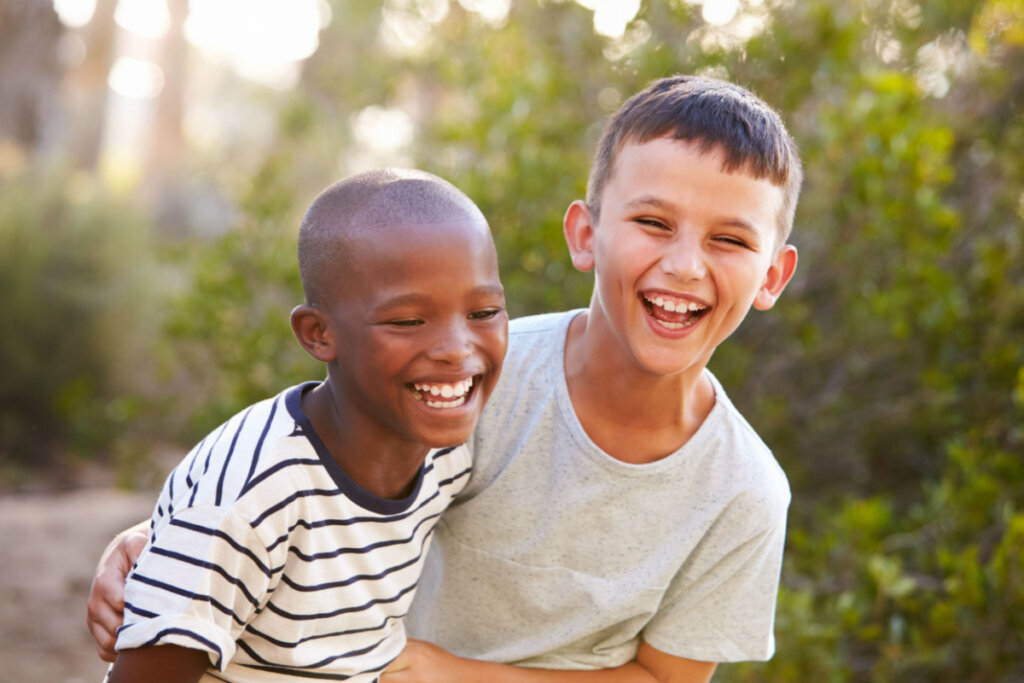Strategies for Teaching Tolerance


Written and verified by the psychologist Gorka Jiménez Pajares
Today, there are increasing cases of violence in our society. Despite the fact that we might do a great deal to try and prevent it, mindless violence is now established in environments that should be friendly, such as schools. Therefore, we need to start teaching tolerance. In fact, by sowing its seeds, we’ll be able to develop capacities such as understanding and cooperation with other people. These are essential if we want to fully develop, both as individuals and as a society.
Today’s world is a maelstrom of uncertainty. Indeed, in a really short time, we’ve gone through a pandemic and a war. Both have created a context of economic crisis. Moreover, they’ve made us perceive the world in a more uncertain way. And, uncertainty acts as a breeding ground for intolerance.
“These are times of pessimism, times of contempt, times of poverty and degradation. This is the habitat where intolerance now comes galloping along.”
-Esteban Ibarra-
Tolerance
Being tolerant means accepting and embracing that which is different. For the French philosopher, Monique Canto-Sperber, tolerance is a self-control skill. It consists of our ability to refrain from issuing opinions, judgments, and actions that could hurt other people.
The goal of tolerance is that, as a group, people live in harmony. However, humans are extremely diverse beings. In fact, we’re as diverse as the stories that form part of our biographies.
Therefore, it’s worth asking whether there are enough reasons to justify the need to teach tolerance. There are. Through tolerance, we learn to adopt kinder perspectives. We’re able to perceive situations of conflict and misunderstanding as normal and inherent to us, as humans. Moreover, we can work to overcome any differences there may be due to difficulties in communication.
As a matter of fact, we need to be tolerant if we want to live in today’s globalized society. The goal is for us to be able to cohabit in the same context without violence, conflicts, and discrimination. While this may sound like common sense, it’s only through cooperation that we’ve been able to achieve great feats as a species. For example, the invention of the wheel, the achievement of scientific knowledge, and the development of modern technology.
“Tolerance is respect, acceptance, and appreciation of the rich diversity of our world’s cultures, our forms of expression, and ways of being human.”
-1995 UNESCO Declaration-

Some strategies for teaching tolerance
We often learn tolerance when we’re children. Indeed, if we grow up in environments that promote acceptance and respect for what’s different, it’s likely that we’ll incorporate it into our personal belief systems and values.
Next, we’ll discuss some ways of promoting tolerance.
1. Cooperation as a tool
For children, a good way of getting in touch and understanding people who are different from them is via interaction and cooperation. With cooperation, they work together to achieve certain goals. In order to become familiar with different contexts, they come into contact with those different from the ones they’re used to
2. The importance of communication
We’re social beings, which means conflicts are normal. Fortunately, when faced with conflict, we’re able to go beyond it in order to overcome our differences and reach agreements that are shared, rich, and diverse.
Therefore, the way we communicate is important. We must remember that our goal should be to respect those who are different from us. For this, assertive communication can be a useful tool and can be learned within the family.
“We can foster communication between the school, the home, the social environment in which the children live and the community, both immigrant and native.”
-Esteban Ibarra-

3. Weaving emotional threads
To weave emotional threads with people other than ourselves, we can make use of empathy, a skill that we can all learn. Empathy is the capacity of being able to experience emotions that other people are feeling. It also allows us to imagine what they may be thinking.
In fact, the capacity of empathy is extraordinary because it intimately connects us to other people, regardless of the differences that may separate us.
We’re all, along with schools, families, and governments, responsible for building a more tolerant society. It’s up to us to build a context in which differences with others are no longer irreconcilable. Instead, they should be links that bring us closer together.
In conclusion, if we train our eyes to capture similarities instead of differences, we may be surprised to learn that we’re more similar to each other than we thought. Undoubtedly, it’s well worth learning to be more tolerant.
All cited sources were thoroughly reviewed by our team to ensure their quality, reliability, currency, and validity. The bibliography of this article was considered reliable and of academic or scientific accuracy.
-
Consejo General de la Psicología en España (2022). Educar para la tolerancia, nueva guÃa. www.infocoponline.es. https://www.infocop.es/view_article.asp?id=21962
-
Libera2.com. (s. f.). MOVIMIENTO CONTRA LA INTOLERANCIA. http://www.movimientocontralaintolerancia.com/html/entrevistas/entrevistas.asp
-
Hernández, I. (2004). Educar para la tolerancia: una labor en conjunto. Revista Mexicana de Ciencias Políticas y Sociales, 47(191), 161-174.
This text is provided for informational purposes only and does not replace consultation with a professional. If in doubt, consult your specialist.








